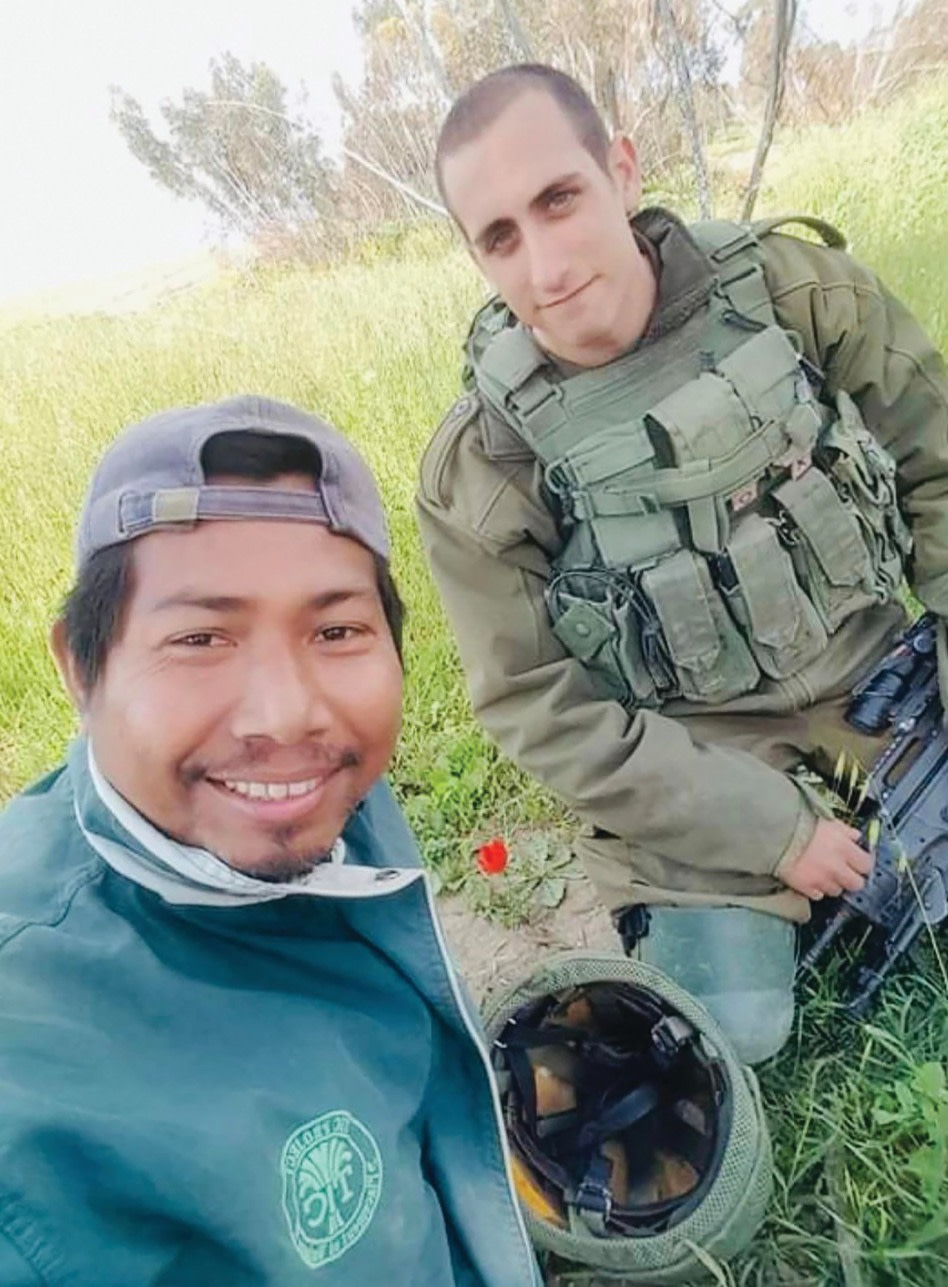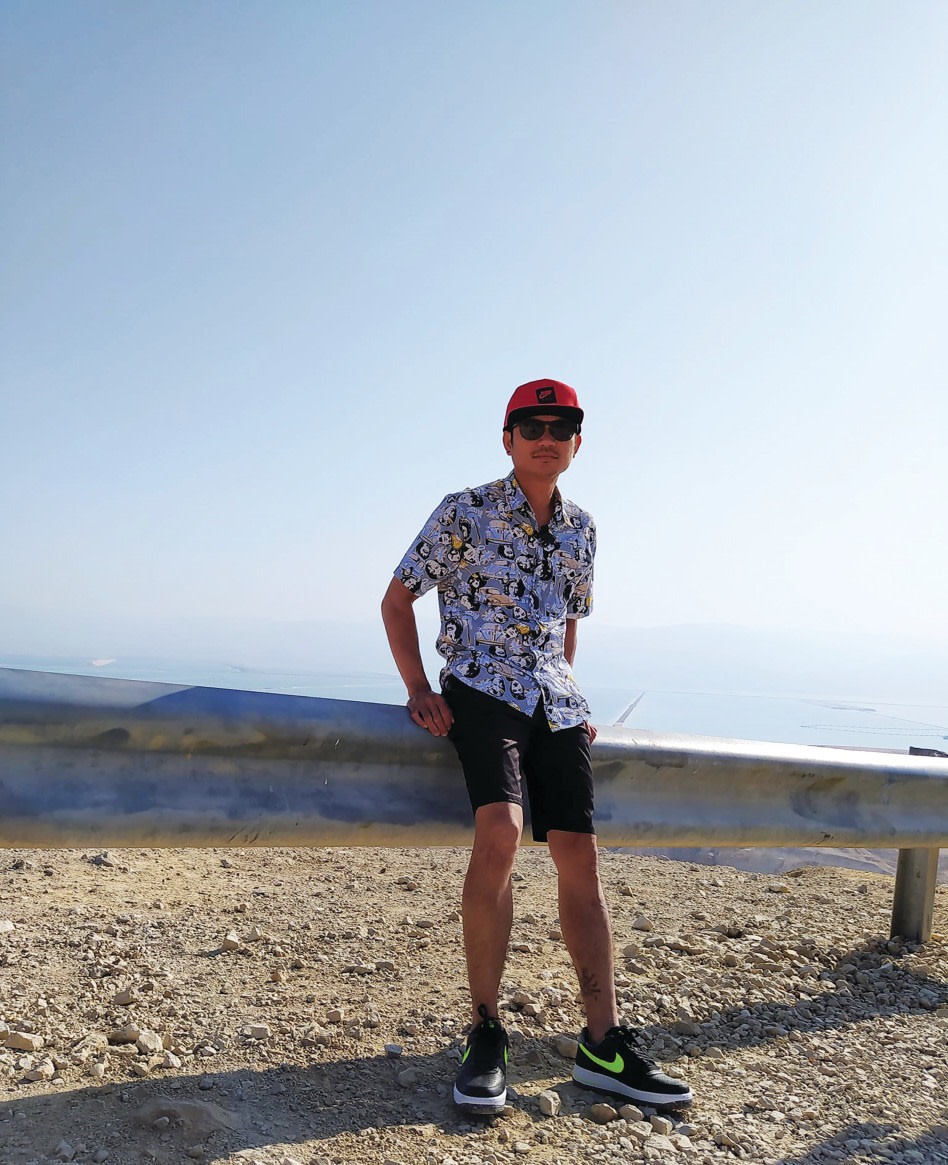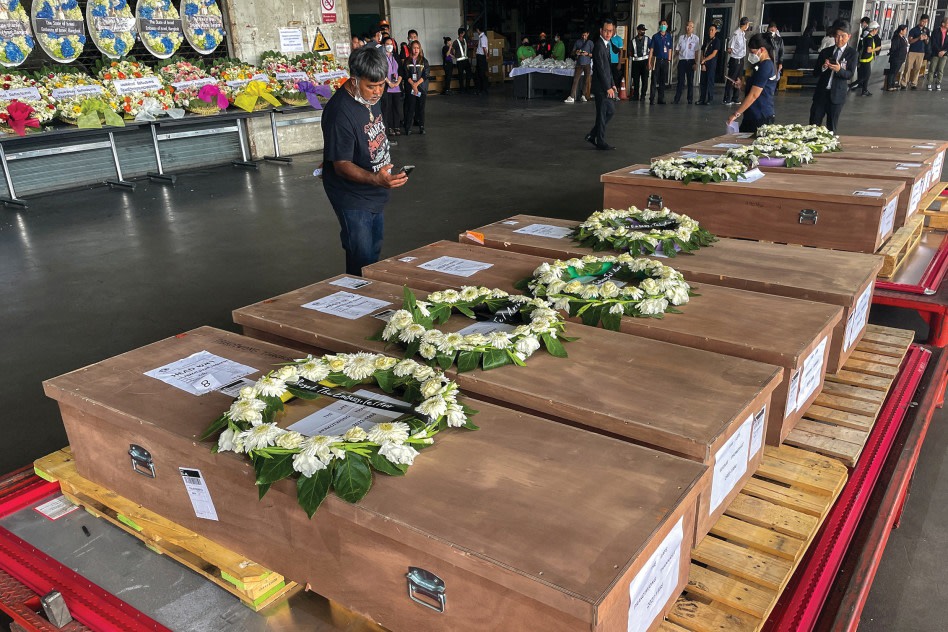According to data from the Thai government, approximately 30,000 Thai citizens work in Israel, with the majority of them employed in the agricultural sector. Prior to October 7, around 6,000 Thai agricultural workers were based in communities near Gaza.
On that fateful "Black Saturday," more than 30 Thai agricultural workers were brutally murdered, while additional workers were reported missing and dozens were kidnapped to Gaza. This week, ten bodies were repatriated to Thailand, in addition to another fifteen returned earlier last month.
Since October 7, over 7,000 Thai agricultural workers have left Israel, facilitated by the Thai government.
While much has been said about the impact of their departure on the agricultural industry in the communities bordering Gaza and Israel as a whole, the voices and anguish of these Thai workers, who came to earn a living and support their families, have largely been overlooked.
'Heartbroken'
Hekarit Ditkarthok, a five-year veteran of agricultural work at Kibbutz Alumim, is currently hospitalized with minor injuries.

"I still haven't recovered from what happened on October 7,” he said. “I only want Hamas and these terrorists to die. It was an incredibly cruel and barbaric massacre."
That morning, at 6:30 a.m., Hekarit and a friend were preparing breakfast when they heard the alarms.
"We didn't understand what was happening, as these alarms were not new to us,” he said. “We rushed to the shelter. Suddenly, the terrorists stormed the shelter, screaming. They threw a grenade through the window and broke down the door. We showed them the Thai flag and tried to explain in English that we were Thai, but they showed no interest.”
"They coldly shot each one of us,” he added. “It was a terrifying scene. I was wounded, and they thought I was dead, fortunately sparing me from another shot. Of the eleven of us in the shelter, I am the only one who survived. When I saw, the terrorists rolling a grenade through the door, I jumped out of the window and escaped from the rooftop.”
Hekarit then hid in a cowshed, using cow hides for cover.
“While I was hiding, I saw Hamas militants dragging Thais and ruthlessly shooting them one by one. It's an image that haunts me, recurring even in my dreams."
The man explained that it took about eight hours for the army to arrive.

"It took around eight hours for the Israeli soldiers to arrive,” he said. “They promptly rushed me to the hospital. The intensity of the explosions also damaged my hearing. I am utterly devastated and heartbroken. I lost dear friends who were mercilessly killed, with some taken hostage. I pray for their safe return."
Hekarit said that he does not plan to stay in Israel once released from the hospital.
"I know that the Thai embassy is helping survivors of the massacre, but I cannot erase these horrifying memories," he admits. "I came to Israel to work, not to be armed or die. Of course, I would love to return to my job because I enjoyed working in Israel, but the trauma is too overwhelming at the moment. Maybe in the future, but right now, the wound is too deep. Many of my friends have left Israel, and I understand their decision entirely. It's a lifelong scar."
Haunted by nightmares
"I am haunted by nightmares every time I try to sleep since that Saturday," said Korat Ka-Fluan, another survivor of the massacre at Kibbutz Nir Oz. "I still grieve for my brothers and sisters with whom I worked, who were brutally murdered. Each time I hear of another friend who was killed or remains missing, my mental state deteriorates.

Ka-Fluan highlighted that he can’t help but think about those terrifying moments.
"I can never forget those horrific moments when Hamas entered our shelter, firing from all directions,” he said. “I distinctly recall witnessing my friends being killed before my eyes, until I found refuge in a cowshed, hiding behind the cows. The farmers I worked with were also slain, and they had been exceptionally kind to me."
With the arrival of army forces in Nir Oz, Korat sought refuge in a hotel in Tel Aviv, where he experienced the generosity of the Israeli people.
"They took care of us by providing food, clothes, groceries, and showed us immense love,” he said. “They didn't make us feel like strangers, but rather an integral part of Israel. The Thai embassy has also been incredibly helpful."
Korat expressed his desire to find employment in Australia, as he no longer wishes to work in Israel due to the fear, insecurity, and painful memories associated with the recent events.
“As soon as I find another job, I will immediately move to another country,” he said. The sight of my friends' bodies and their abduction haunts me. I am deeply depressed because of this situation."
